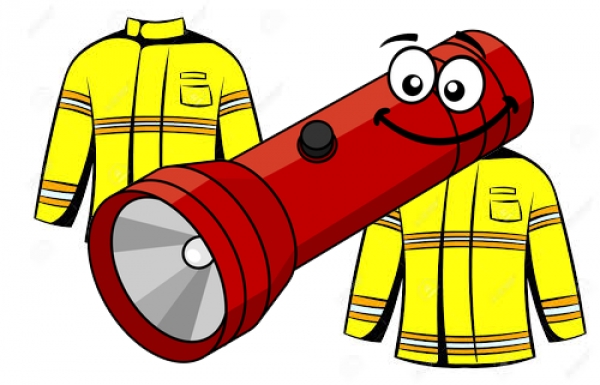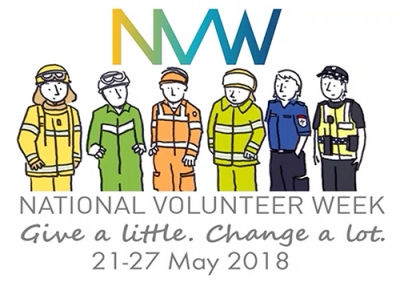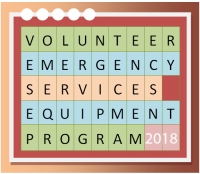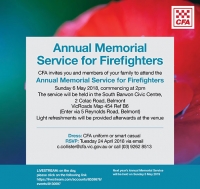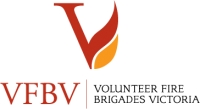
HomePage Featured (462)
The Dandenong Fire Brigade are again sponsoring a firefighters health and safety awareness program of fire smoke.
This ‘Smoke Symposium’ training and awareness program is presented by the Fire Smoke Coalition of the United States, with sponsorship from the Dandenong Fire Brigade, and will feature world’s leading fire service experts on Hydrogen Cyanide (HCN) exposure and Smoke Toxicology
Organisers are pleased to announce that we will have Jason Krusen from the FireSmoke Coalition attend to present at two single day workshops in August here in Melbourne.
Key topics to be covered:
- Anatomy of smoke
- Atmospheric monitoring
- Air management
- Treatment of the smoke inhalation patient
- PPC & the dangers of contaminated gear
| When: | Friday 3 August 2018, 0900-1600 hours Saturday 4 August 2018, 0900-1600 hours *Two separate sessions available |
| Where: | Frankston Performing Arts Centre 27-37 Davey Street, Frankston, Victoria |
| Registration: | www.trybooking.com (Search Buy Tickets for ‘Smoke Symposium’) |
| Cost: | Free |
A copy of the advertisement is available for download at the bottom of this page.
VFBV has received a District Council request to advocate that for reasons of health and safety - that torches be mandated as forming part of CFA’s minimum Personal Protective Clothing and supplied by CFA.
State Council discussed this matter at their most recent meeting, and have requested a survey be conducted to determine Brigades and Group’s feelings on these topics, as well as gather some information on what type and how they should be allocated, to enable VFBV to form a position on which to advocate to CFA on behalf of all volunteers.
They survey is open to Brigades, Groups and Individuals. (Results will be weighted accordingly)
Feedback or comments are due no later than Sunday 30th September 2018.
The online version of the survey can be completed by going to the following: https://www.surveymonkey.com/r/VFBVtorchSurvey
A paper copy is also available at the bottom of this page. paper copies can be returned via:
| Email: | This email address is being protected from spambots. You need JavaScript enabled to view it. |
| Post: | 9/24 Lakeside Drive, Burwood East, VIC 3151 |
| Fax: | (03) 9886 1618 |
A multi-agency project team involving CFA, SES and Ambulance Victoria have launched a survey to gather the views of volunteers on a future supplementary altering system, involving a mobile app.
VFBV supports this survey and project, and encourages all members who would like to compliment their paging service with additional options such as mobile apps to provide feedback via the survey. The survey closes on 31 July 2018.
You can complete the survey by clicking here.
Below is addition details reproduced from the CFA announcement on the 4th July 2018
DCO Gavin Freeman requests your feedback on a proposal to use a smart phone application as a Supplementary Alerting System (SAS). Take the survey before 31 July to have your say.
A Supplementary Alerting System (SAS) Project Team, which includes CFA, EMV, SES and Ambulance Victoria, is working to procure a smart phone application that can provide an additional way for receiving alerting messages.
With the purpose of supplementing the current EAS pager alerting system, the Project Team is seeking feedback from CFA people through this survey.
DCO Gavin Freeman encourages participation in the survey, which will assist in the design of the Supplementary Alerting System.
“We’re aware that many of you are currently using commercially available applications which provide this service, our aim is to procure an application that provides a common platform and is accessible by all our people,” he said.
“By taking part in this survey, you will help the SAS Project Team understand the views of our –people on these high-level requirements and to hear if there are other capabilities which should be included.
“Responses will then be considered for inclusion in the tender request sent to application providers.”
It is planned that tenders will be called for in August, with an application being made available later this year. The survey is being managed by EMV and to ensure the validity of the results, CFA people will be asked for name and member number.
“It is important to note that these will only be used to confirm you are a CFA member when completing the survey. EMV will remove these details from any results supplied to the SAS Project Team, ensuring your feedback remains confidential at all times,” he said.
Gavin emphasised that any new smart phone application would always be a supplement to our pagers.
“Current pagers use a service that guarantees timely delivery of all messages and no telecommunications (phone) provider can give the same assurance. Pagers will continue to be CFA’s primary method of alerting staff and volunteers to emergency calls,” he said.
CFA Proposed Integrity Framework for Consultation
Written by Adam BarnettCFA have formally requested review and feedback on a CFA's proposed Integrity Framework.
Members are requested to please review and provide feedback on the draft framework available for download at the bottom of this page. Paper copies may also be requested via the VFBV office on (03) 9886 1141.
Any comments, suggested improvements or clarifications would be welcome, as would any concerns, aspirations practical limitations or difficulties members may seek or identify.
Feedback via email, or post would be most preferred, and feedback is welcome from any individual, brigade or group.
As we are expecting wide ranging views on this topic, VFBV is keen to ensure Brigades and Groups have an opportunity to provide feedback and/or comment and encourages any member or individual to provide comment. VFBV District Councils have also been requested to raise via local forums for discussion.
Feedback will be used to help inform VFBV's formal position and feedback to CFA.
How to make feedback
We have allocated our VFBV Policy Support Officer to coordinate and support field feedback. All formal feedback, comments or questions should be directed to Christine Fryer in the first instance, though members are encouraged to discuss their early thoughts with your local District Council Executive and State Councillors to inform local discussions.
Formal Feedback can be sent to:
| Email: | This email address is being protected from spambots. You need JavaScript enabled to view it. |
| Post: | 9/24 Lakeside Drive, Burwood East VIC 3151 |
| Fax: | (03) 9886 1618 |
Feedback is requested by no later than Monday 20th August 2018 - but much earlier if possible. It would be preferred that members provide feedback ASAP so that it can be received incrementally, allowing enough time to consolidate, identify trends/themes and research issues raised by members in preparation for our response to CFA.
Draft Business Rule - Traditional Social and Digital Media
Written by Adam BarnettCFA have formally requested review and feedback on a new CFA Business Rule: Traditional, Social and Digital Media
Members are requested to please review and provide feedback on the draft business rule that is availablefor download at the bottom of this page. Paper copies may also be requested via the VFBV office on (03) 9886 1141.
Any comments, suggested improvements or clarifications would be welcome, as would any practical limitations or difficulties members may identify.
Feedback via email, or post would be most preferred, and feedback is welcome from any individual, brigade or group.
As we are expecting wide ranging views on this topic, VFBV is keen to ensure Brigades and Groups have an opportunity to provide feedback and/or comment and encourages any member or individual to provide comment. VFBV District Councils have also been requested to raise via local forums for discussion.
Feedback will be used to help inform VFBV's formal position and feedback to CFA.
How to make feedback
We have allocated a VFBV Support Officer to coordinate and support field feedback. All formal feedback, comments or questions should be directed to Mark Dryden in the first instance, though members are encouraged to discuss their early thoughts with your local District Council Executive and State Councillors to inform local discussions.
Formal Feedback can be sent to:
| Email: | This email address is being protected from spambots. You need JavaScript enabled to view it. |
| Post: | 9/24 Lakeside Drive, Burwood East VIC 3151 |
| Fax: | (03) 9886 1618 |
Feedback is requested by no later than Monday 20th August 2018 - but much earlier if possible. It would be preferred that members provide feedback ASAP so that it can be received incrementally, allowing enough time to consolidate, identify trends/themes and research issues raised by members in preparation for our response to CFA.
Download Business Rule
A copy of the draft Business Rule is available from CFA Brigades Online and can be downloaded from here: https://cfaonline.cfa.vic.gov.au/mycfa/Show?pageId=displayDoc&docId=030091
Hard copies are available from the VFBV Office to any CFA member and can be requested via (03) 9886 1141 or email This email address is being protected from spambots. You need JavaScript enabled to view it. for a copy.
Volunteer Week Highlights Importance of CFA Brigades
Written by Adam BarnettCFA volunteers have saved lives and property for decades and while the faces might be changing and the service evolving to meet changing needs, they remain an essential part of our community.
Volunteer Fire Brigades Victoria CEO Andrew Ford says the value and professionalism of volunteers make them a vital part of every regional Victorian community.
“The system works remarkably well and is always evolving to meet the growing and changing needs of today’s communities,” he said.
A newly edited video shows how CFA volunteer strength in numbers protects Victoria in times of need. The video demonstrates how volunteer surge capacity defends one of the world's most fire prone areas. It is on YouTube at https://youtu.be/LmgbohOEBwk.
Mr Ford said some people might not appreciate the diversity and professionalism of the modern volunteer system.
“Gone are the days when firefighting was a role for just men,” he said. “Today we have highly experienced and qualified people from all ages, gender, backgrounds and demographics performing front line firefighting roles, operational leadership roles and support roles.
“When we are saving your property or helping in your time of need, you don’t care whether we’re male or female, paid or volunteer, or what our race, religion or sexuality we might be; you just appreciate volunteers are there with their local knowledge, experience, training and professionalism.”
Mr Ford said volunteers also benefit by giving back to their communities, learning new skills, developing leadership qualities and making new friends.
The VFBV continues to encourage everyone to become CFA volunteers to help protect their communities through a broad range of roles.
“As one of the most fire-prone places in the world, Victorians can be confident that with almost 60,000 volunteers and 1000 paid firefighters, we’re professionally trained and equipped for all fire risks and our huge volunteer numbers mean we have the ability to step up and respond anywhere in the state in times of disaster,” he said.
“Volunteer Week is the perfect time to recognise and thank volunteers for their dedication, professionalism and commitment, and to thank the people, families and employers who work with and support us, and the communities who have confidence in what we do and know how vitally important CFA is.
“Particular thanks goes to all of our CFA volunteers, to volunteers across other emergency agencies and to the many volunteers who provide valuable and dedicated services across a whole range of community needs – well done, celebrate your efforts with a deep sense of pride. You are the spirit and foundation of community.”
People interested in volunteering can contact their local brigade.
The issue of Brigade and Group allowances is regularly raised with VFBV delegates as a matter of concern amongst members. As a result, State Council has recently decided to survey all Brigades and Groups to determine if current allowances are adequate.
A copy of the Annual Allowance Survey has been posted to all Brigade and Group Secretaries with this quarters VFBV mail-out.
By inviting all Brigades and Groups to participate, we will be able to consolidate volunteer’s views on this issue, both at the local and State level as well as collect evidence to support any future advocacy on this important matter.
We would appreciate your response no later than Monday 6th August. You can either Post, email or fax your response to:
Mail: 9/24 Lakeside Drive, Burwood East VIC 3151
` Fax: (03) 9886 1618
Email: This email address is being protected from spambots. You need JavaScript enabled to view it.
Whilst the preferred questions will only take a few minutes to answer, we urge you to consider spending some time on the detailed optional questions or consider attaching your annual budget. The requested detailed information will be critical to our ability to advocate from a strong evidence-based position. All individual Brigade and Group responses will be strictly confidential and will not be provided to CFA or anyone else without your express permission. All data will be aggregated and de-identified to protect your privacy.
Thank-you in advance for your participation, and if you have any questions or wish to discuss please feel free to contact your local State Councillor, a VFBV Support Officer or the VFBV office on (03) 9886 1141.
Applications are due to your Operations Manager by the 4th June.
The Minister for Emergency Services has announced the opening of this years VESEP (Volunteer Emergency Services Equipment Program).
VESEP provides funding to assist emergency service volunteers in acquiring a wide range of ancillary equipment in recognition of your significant contribution in supporting Victorian communities in times of emergency. The funding formula for the program in most instances provides for $2 for $1 of Brigade/Group funding.
The program launched in the year 2000, which back then was called the CSESP Program (Community Safety Emergency Support Program) and was designed in close consultation with VFBV and volunteers and achieved the goal of having an annual grants program for volunteers - designed by volunteers, with a low paperwork requirement, $2 in grant money for every $1 of local contribution for sustainability and local buy-in, local driven priorities with annual strategic state initiatives, robust district/region and state volunteer peer review and a quick and timely approval and notification process to the successful brigades and groups.
Since its inception, the program has completed over 1,500 projects totalling more than $110 million dollars.
VFBV have put together an Application Help Pack and Case Studies to assist Brigades and Groups with their applications. This pack offers practical suggestions and complements CFA’s Guidelines and the 2018/2019 Application forms.
The pack is available for download below, or if Brigades would like a printed copy posted to them, then please call the VFBV Office on 9886 1141
Members can also contact their local VFBV State Councillors and/or VFBV Support Officers for any additional information or assistance with their applications. Previous years Case Studies can be downloaded from here.
We wish all Brigades and Groups well with your applications and thank you for your untiring service to Victoria!
The Annual Memorial Service that honours those members who have lost their lives in the line of duty is being held on Sunday 6 May 2018.
The service will commence at 2pm at the South Barwon Civic Centre, 2 Colac Road, Belmont near Geelong.
This year marks the 20th anniversary of the passing of the five Geelong West firefighters (2/12/1998) at Linton and also 35th Anniversary of Ash Wednesday (16/2/1983) where CFA Members from Nar Nar Goon, Narre Warren, Panton Hill and Wallacedale lost their lives on that day at various areas around Victoria.
The Annual Memorial service is held on the Sunday closest to International Firefighters’ Day and St Florian’s Day (4 May). St Florian is the patron saint of firefighters.
The Annual Memorial Service is an event to honour and commemorate the lives of CFA firefighters who have not returned home from the fireground. It's a time for reflection and just one of the ways we can remember the lives of 67 CFA members and 11 Country Fire Brigades Board and Bush Fire Brigades Committee firefighters (prior to the formation of CFA), who have paid the ultimate sacrifice and given their lives in service to protecting our communities.
All are welcome to attend this service.
Please RSVP by Friday 21 April to Chelsea Collister (This email address is being protected from spambots. You need JavaScript enabled to view it. or phone on 9262 8513).
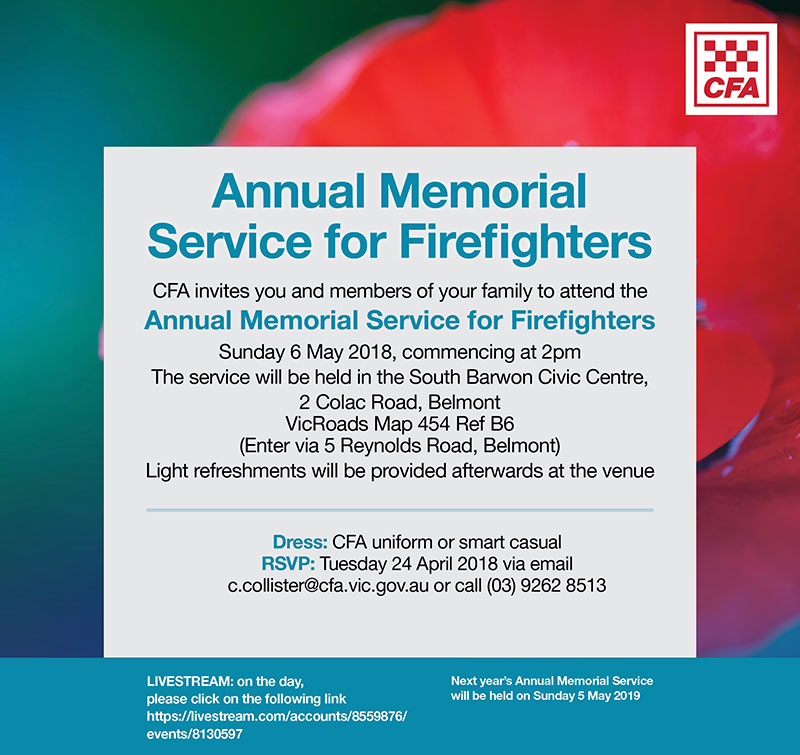
Invitation open to all volunteers to apply.
Current VFBV Board vacancy, and forthcoming vacancies, for which applications are invited from interested volunteers include:
- Current VFBV Board vacancy (retired member not eligible to apply), with term of appointment until 1st October 2019. Closing date for applications 25th May 2018
- Forthcoming VFBV Board vacancies will arise when the terms of Andy Cusack, Nev Jones, Bill Maltby and Bruce Pickett expire on 1st October 2018; all members are eligible for re-appointment. The four terms of appointment will be for two years, expiring 1st October 2020. Closing date for applications 1st August 2018.
VFBV is the representative body (Association) for CFA Volunteers and is established under Victorian law, the Country Fire Authority Act, to represent CFA volunteers on all matters that affect their welfare and efficiency.
VFBV advances the interests of all Victorian fire brigade volunteers and advocates on their behalf to CFA and other key stakeholders. The VFBV Board drives policy development based on volunteer input and is involved in management of issues of central importance to all CFA volunteers.
The role of a VFBV Board Member involves contributing to VFBV direction, policy determination and monitoring the performance and governance of the Association. Also actively contributing to policy discussion at Board Meetings, networking with others about policies and issues management, and not only making decisions but being prepared to actively advocate for the benefit of all CFA volunteers and ultimately the Victorian community.
A Board Member Role Statement including the key selection criteria is available from the VFBV office or can be downloaded from the bottom of this page.
This is an honorary position; no honorarium is paid.
If you are motivated by the prospect of making a difference for CFA volunteers, then send your written application addressing the key selection criteria in the role statement, plus an outline of your CFA activity including the names of two referees.
It is requested that your application clearly states whether you are applying for the casual vacancy (term until 1st October 2019), or the forthcoming vacancies (terms until 1st October 2020), or both. Applications can be for both if received by 25th May 2018.
Applications must be lodged for these vacancies with VFBV by Friday 25th May 2018 and/or Wednesday 1st August 2018 to:
VFBV, 9/24 Lakeside Drive, Burwood East 3151
Enquiries can be made via Tel: 9886 1141; Fax: 9886 1618; or email This email address is being protected from spambots. You need JavaScript enabled to view it.
More...
A reminder for everyone to consider getting along to the VFBV State (Rural) Championships to be held at Warrnambool this weekend (Saturday 7, Sunday 8 April).
The Seniors will be competing on the Saturday, and the Juniors will be competing on the Sunday.
This will be the 62nd Senior State Rural Championship and the 40th Junior State Rural Championships.
Events at the rural championships which evolved in the 1950's are based around more current fire ground practices and most use either tankers or replica tanker stands for most of their events.
Results from this weekends Championships will again be posted here: https://www.facebook.com/Volunteer-Fire-Brigades-Victoria-Championships-451309545285820/
And we also be running our live stream of Photo's from the weekend via our Flickr account at; https://www.flickr.com/photos/vfbv/albums/with/72157693786197555
State Championships allow volunteer firefighters to test their skills and prowess against opposing Brigades in a congenial atmosphere and provides an opportunity to strengthen existing friendships and form new bonds with Brigade members throughout Victoria and interstate. Unlike a real bushfire or structural fire situation, which often pits firefighters against mother nature and where lives and property are at risk, these drill competitions are more firefighter versus firefighter, and Brigade versus Brigade, which allows for a more friendly opponent than mother nature.
The Top 10 benefits and objectives of our competitions and State Championships are to:
- increased operational firefighting efficiency and discipline
- develop, maintain and enhance the operational skills of firefighters by providing a competitive environment to promote and hone training and skills maintenance in core and fundamental firefighting skills and practices
- develop teamwork and leadership skills of individuals and Brigades
- increased health and fitness development and promotion of healthy lifestyle and its correlation to increased firefighting efficiency and effectiveness
- promote comradeship amongst firefighters, sense of belonging and networking
- encourage family participation and strengthen community engagement and involvement in local Fire Brigade’s
- encourage our future CFA volunteer firefighters and provide early exposure to young people to instil a sense of community service and the importance of local Fire Brigade’s
- promote a professional image of CFA to the community
- instil and promote the Australian tradition of having a go, and doing your best
- promote and recognise our future CFA, Brigade and VFBV leaders and celebrate excellence
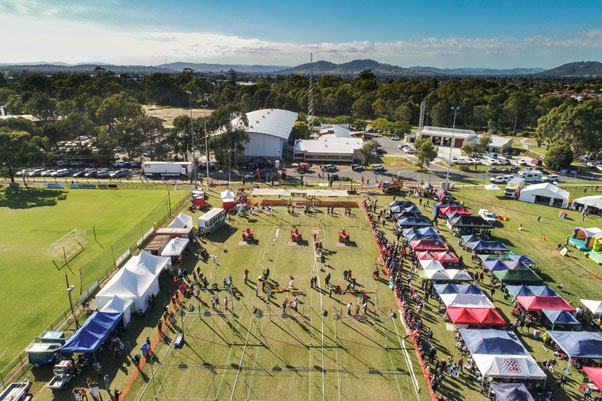
Government Fire Services Legislation has not passed Parliament Upper House
Written by Adam BarnettNOTE TO MEMBERS – Saturday 31st March 2018
Yesterday the Victorian Upper House voted to reject the Governments Fire Service restructure legislation. This is an extremely good outcome for CFA, Victoria's Fire Services and all Victorians.
Despite the Governments spin - the proposed restructure provided no additional resources, capacity or flexibility for Victoria's fire services than exists today and in fact the proposed changes proposed to dismantle the CFA integrated model, further fragment the fire services, erode the CFA Chief Officers powers and ability to manage CFA operations and posed a dire threat to Victoria's future capacity to deal with major fires and sustain the volunteer surge capacity required for major fires and emergencies.
BRIEF RECAP
To recap, this proposed legislation change was announced by Premier Daniel Andrews and Minister James Merlino in May 2017 and subsequently received wide spread condemnation for being ill-conceived, driven by an industrial interference agenda, diminishing and discouraging volunteer capacity, dismantling the CFA integrated model and eroding the CFA Chief Officers power and control of CFA resources.
Despite Government spin, the proposed legislative changes provide no additional service capacity or service interoperability than exists today and in fact the proposed changes further fragment the fire services. During the past year, the Governments own messaging indicates the proposed changes were motivated by a Government and United Firefighters Union desire to find a way to push ahead with an over reaching EBA that limits how CFA supports, equips, recognises, respects and consults with volunteers.
People will recall that the proposed legislation was introduced in May 2017 without consultation with volunteers, and without involvement of representatives from Emergency Management Victoria, the Country Fire Authority or the Metropolitan Fire Brigade.
PRESUMPTIVE LEGISLATION
Appallingly, the proposed legislation combined two totally separate issues, one being firefighter’s presumptive compensation rights for cancer illness caused by firefighting duties and the other being the proposed fire services structure and arrangements changes that essentially carve up CFA, one as a ransom note for the other.
There was a motion put by Daniel Young on behalf of the Shooters, Fishers and Farmers Party to split the Bill and appropriately separate the firefighter’s presumptive compensation rights for cancer illness aspects of the Bill from the proposed fire services restructure, allowing the presumptive compensation aspects of the bill to proceed, and be put to a vote. This motion was supported by the Coalition and Vote 1 Local Jobs member, James Purcell.
This motion was defeated by one vote, with Labor, the Greens and Reason Party MP’s voting against a motion that would have allowed Presumptive Legislation for firefighters to have been passed this week.
LEGISLATIVE COUNCIL ALL-NIGHT SITTING
Yesterday's final vote in the Upper House came on the back of an unprecedented all night sitting of the Upper House on Easter Good Friday. The Legislative Council began at approx. 0930am on Thursday morning, and was forced to sit for close to 26 hours, (with this being the first time in Victoria's history of the Council being forced to sit on Good Friday) with the all night marathon sitting forced to push through to continue sitting well into Good Friday. This move was heavily criticised by many MPs and was clearly driven by the Government seizing on the misfortune of a sick MP, Dr Rachel Carling-Jenkins and thinking that without her vote opposing the Bill they could sneak the vote through.
Once again, the rejection of this ill-conceived legislation is well received and volunteers and communities across Victoria have already started actively voicing their gratitude for the sustained effort and support from those MPs who rejected the Bill and prevented the destruction of CFA.
NEXT STEPS
There will be further information forwarded during the coming week, with more details of the debate and next steps.
VFBV officers have received dozens of calls from volunteers asking for their comments of appreciation and thanks to be passed on to MPs, particularly to the MPs from the Coalition and independent MPs James Purcel (Vote One Local Jobs), Jeff Bourman and Daniel Young ( Shooters, Fishers and Farmers Party) and also to Dr Rachel Carling-Jenkins, who has previously made public comment on her concerns and opposition to the proposed fire service restructure legislation, and despite being unable to attend the Upper House committee debate released public statement confirming her position with regard to the Bill had not changed. People wishing to pass messages to these MPs are encouraged to this directly with them.
Volunteers are also encouraged to contact Labor, Greens and the Reason Party MPs who were pushing for the Bill to be supported, to see what can be done to build their understanding of how CFA actually operates, the professionalism and first class services provided by volunteers and to correct numerous incorrect comments they made during the Upper House committee debate. VFBV will be reviewing the Upper House committee debate transcript in detail and will provide volunteers with further briefing as soon as possible on some of the comments, assertions and propositions that need follow up.
THANK YOU
Thank you to the huge number of volunteers and supporters who are tuned into this vitally important issue. It is unclear what the Government will do next but for now the flawed legislation to carve up the CFA has been rejected by Parliament. Great news for all Victorians.
It is also worth reflecting on the fact, that whilst the Upper House was debating the carve up and destruction of the world renowned fully integrated CFA, volunteers along with our paid colleagues, were out selflessly raising money shoulder to shoulder for the Royal Children Hospital’s Good Friday appeal.
In an outstanding result, CFA is reported to be the biggest contributor to a record breaking Good Friday appeal, with CFA members raising in excess of $1.67 million dollars for the appeal. CFA members have been participating in this appeal for 67 years, with over $30 million raised over the years by CFA members for the Royal Children’s Hospital.
Werribee Fire Brigade, celebrating the raising of over $1 million for the appeal over the last 40 years, presented the CFA cheque for $1,677,628.35 to this year’s appeal during the Channel 7 live telecast.
In closing, please be respectful to one another, including those who were driving an agenda that we disagree with. For now, our focus should be about everyone getting on with keeping CFA the great organisation it has always been, making it even stronger into the future and continuing to do what we are all motivated by, serving and protecting our communities.
Have a safe and happy Easter.
Andrew a Ford.
CEO, Volunteer Fire Brigades Victoria
Government Fire Services Reform Legislation is Being Debated
Written by Adam BarnettDear Members,
Please be aware that the Government has exploited Dr Rachel Carling-Jenkins illness and hospitalisation, and has used its numbers to move its Fire Services Reform Legislation to a vote. The Upper House (Legislative Council) is debating the bill, and has been forced to sit all night overnight, and is extending into good Friday. They have not been allowed to adjourn and are continuing to debate.
This is the first time in Victoria's history that the Legislative Council has been forced to sit on Good Friday, and all motions to adjourn debate to allow MP's to observe the religious holiday have been defeated.
You can access the Parliaments live stream from here; https://www.parliament.vic.gov.au/video-and-audio/live-broadcasting
We wish all members undertaking today's Good Friday Appeal on behalf of the Children's Hospital a successful day.
The Spirit of CFA Awards recognise outstanding achievements and significant contributions made by CFA staff and volunteers to CFA, local communities and the state of Victoria.
The Spirit of CFA Awards, which are proudly supported by BankVic and the Victorian Government Valuing Volunteers Program, have the potential to positively impact members, and improve CFA’s standing in the community as an organisation of choice for volunteering and employment. Recognising achievements is an important element of a healthy workforce.
Local communities, organisations, government agencies, brigades, districts and regions are welcome and encouraged to nominate a CFA individual or team for an award.
We’re especially interested to hear about the quiet achievers who go about their daily work without any thought of being recognised.
To be eligible for an award, the nominees must be a current CFA member and demonstrate an outstanding achievement and/or significant contribution to CFA and the community within the past two years (1 January 2016 to 31 December 2017)
Nominate a CFA member or team now (by clicking here)
Nominations close 11.59pm Sunday 8 April 2018 and Finalists will be announced early May.
For more information, please email This email address is being protected from spambots. You need JavaScript enabled to view it.
Category descriptions:
Youth Award (proudly supported by Bank Vic)
The Youth Award acknowledges CFA members between the age of 11 and 25 who inspire others through their commitment to their brigade and community and consistently demonstrate collaboration, initiative and leadership.
This award is open to all individuals between the age of 11 and 25 at the time of nomination.
Seniors Award
The Seniors Award pays tribute to CFA members over the age of 60 who inspire and mentor others through their commitment to their brigade and community and consistently demonstrate collaboration, initiative, and leadership.
This award is open to all individuals over the age of 60 at the time of nomination.
Living the Values Award
The prestigious Living the Values Award honours CFA members who have and continue to exemplify CFA's Values. Nominees promote safety at all times; they show respect, empathy, and understanding, they act with integrity, honesty, and fairness. Nominees also work collaboratively, maintaining open communication and are able to respond and adapt to change.
This award is open to individuals of all ages, locations, and roles.
Inclusion and Fairness Champion Award
CFA's Inclusion and Fairness Champion consistently demonstrates honesty and fairness, they are a champion for equality, diversity and inclusion by challenging the status quo and breaking down the systemic barriers to inclusion and diversity. This CFA member encourages mental health awareness and promotes both physical and mental safety and wellbeing.
This award is open to individuals and teams of all ages, locations, and roles.
Excellence in Community Engagement Award
The Excellence in Community Engagement Award recognises CFA members who have worked collaboratively to develop and apply innovative approaches to community engagement. Their dedication to community safety and resilience has created meaningful and lasting relationships and results.
This award is open to individuals and teams of all ages, locations, and roles.
Excellence in Interagency or Group Cooperation Award
The Excellence in Interagency or Group Cooperation recognises members who engage with other emergency management agencies before, during, and/or after an emergency. By building partnerships, sharing knowledge, and working in collaboration, nominees promote and practice interoperability to ensure the needs of the community are met.
This award is open to individuals and teams of all ages, locations, and roles.
Excellence in Partnership Development Award
The Excellence in Partnership Development recognises CFA members who engaged with other agencies and community organisations before, during, and/or after an emergency. By collaborating with key stakeholders, nominees have improved the efficiency of emergency management arrangements in their brigade and local area to meet stakeholder and community needs.
This award is open to individuals and teams of all ages, locations, and roles.
Excellence in Sustainability Planning Award
The Excellence in Sustainability Planning Award acknowledges the contribution made by CFA members in ensuring we have the capability and resources to keep the community safe. By showing leadership in planning and preparation, and encouraging the development of our people, CFA will meet community needs now and into the future.
This award is open to individuals and teams of all ages, locations, and roles.
Excellence in Innovation Award
The Excellence in Innovation celebrates CFA members who lead transformational change to our services, systems, governance, and processes to improve service delivery outcomes; meeting organisational and community needs now and into the future.
This award is open to individuals and teams of all ages, locations, and roles.
 HomePage Featured
HomePage Featured
